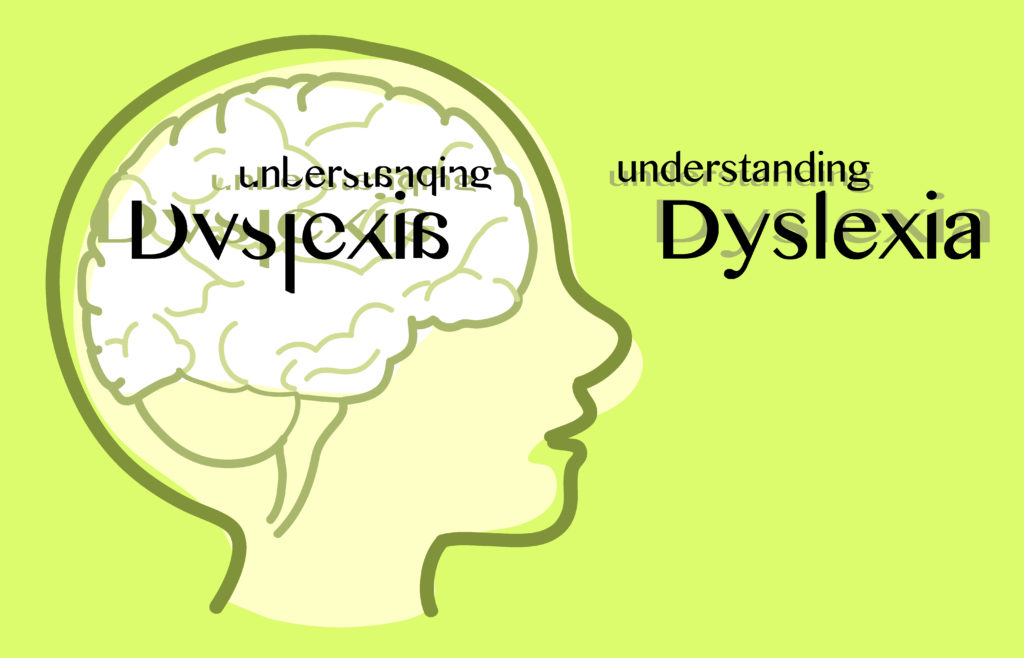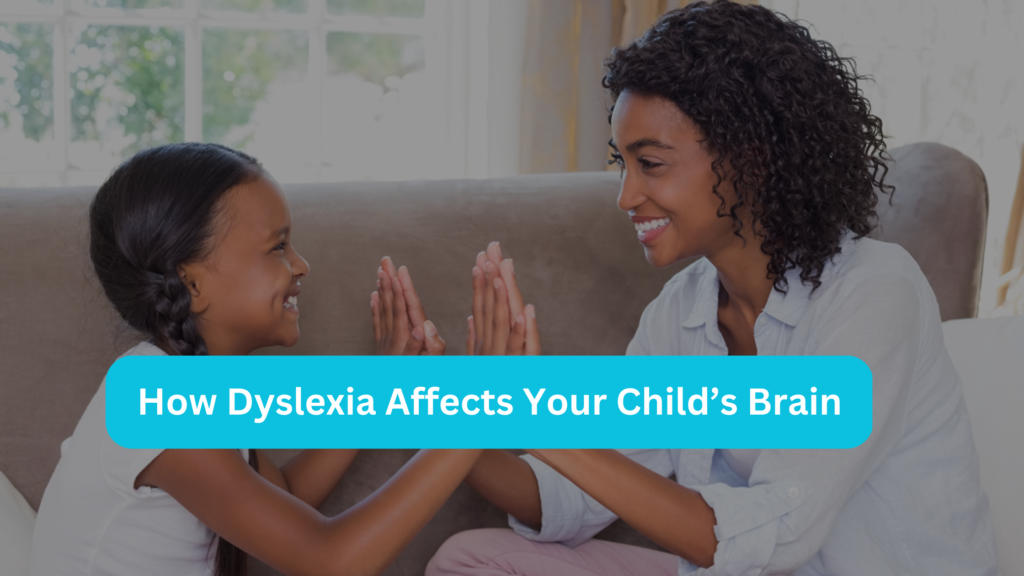How does the brain function in those with dyslexia differ from those without? The brain is a multifaceted, extremely complicated organ. Reading is a difficult task as well. Reading needs the ability to blend sounds together fluently while also comprehending symbols visually and their associated noises. must be able to connect a meaning—or several meanings—to each word. To convey a message, we must consider what to say, pick the right words, break those phrases down into sounds, and then utilize the right letters to spell each sound.
Numerous other languages, including German, Norse, French, Latin, and Greek, are incorporated into the English language. It does not necessarily mean a child’s brain is damaged when they have difficulty reading and digesting words. Simply put, they interpret words and sounds a little differently.
Years of study have revealed that dyslexia is a language-based brain issue rather than a factor in someone’s intelligence or motivation. The right hemisphere and the left hemisphere are the two sides of the brain. The frontal, parietal, occipital, and temporal lobes are only a few of the regions of the left hemisphere that are involved in reading and understanding written text. People with dyslexia have a minor difference in these brain regions.
Dyslexia training for teachers and parents can be helpful in teaching children with dyslexia.

A Deeper Understanding of Dyslexia
One in five children has dyslexia, which is a prevalent problem. Even though you are familiar with the name, you might only have a general idea about how difficult it is to read if you have dyslexia.
We wish to clarify the science of dyslexia for you. This can be a useful tool if your child has just received a diagnosis or if you think he or she might have it so that you know where to turn for support.
What is dyslexia?
Let’s start with the fundamentals and provide the simplest explanation of dyslexia. It is a learning disability that makes it difficult to rhyme, talk, write, and spell.
Dyslexic children have difficulty deciphering and digesting written words and numbers. It is a cognitive issue rather than a visual one. It, therefore, has to do with how the brain functions.
It’s critical to realize that dyslexia has nothing to do with intelligence. Dyslexic children frequently have high IQs, and they are entirely capable of developing rewarding occupations as adults.
Simply teaching their minds to “interpret” words and numbers will do.
Signs of Dyslexia
Knowing the warning signals that your child might have dyslexia is also beneficial. The majority of kids are diagnosed after they start school, but symptoms can be seen even younger.
Signs and symptoms:
- Delayed speech
- Difficulty pronouncing words
- Mixing up words and/ or sounds in words
- Trouble retaining words, letters, and numbers
- Reverses numbers and letters (they read “saw” versus “was”)
- Reading below age level
- Struggles with rhyming, sequencing sounds/ or associating sounds with letters
- Trouble processing information
- Trouble following multistep directions
- Avoids or gets frustrated easily from reading
- Struggles to read aloud
- Frequent spelling issues
- Trouble with math problems
- Difficulty summarizing a story
- Struggles to learn a foreign language
- Lack of coordination
The dyslexia training program from I Empower, LLC can help teachers and parents with lookouts for dyslexia.
How Dyslexia Affects Learning
Children must understand how speech sounds relate to words in order to learn to read. It is known as phonemic awareness. It is what enables young toddlers to distinguish between the different phonemes that make up language.
Children are taught to phonologically associate speech sounds with letters, and later to associate those letters with written words. They will eventually start to recall and recognize well-known terms.
An article from the Harvard Medical School claims that the process of learning to read actually starts in infancy.
The Process Goes Like This:
- Infants – Learn to process sounds.
- Preschool/kindergarten – Learn how to manage language-related sounds or phonological processing.
- Learn individual words and expand your vocabulary to help you read and comprehend whole phrases.
- Finally, kids achieve fluency in reading.
Children with dyslexia have trouble with both phonics and phonemic awareness. They also have trouble memorizing and retaining new terms.
A youngster may be able to stay up in the very early grades, but as their peers start to read and write proficiently, they gradually fall behind.
Different Types of Dyslexia
Dyslexia actually has a variety of manifestations. They are referred to as “categories” by some specialists, which allude to particular impairments or problems a child may go through.
- Phonological dyslexia (also known as dysphonetic or auditory): Difficulty breaking words into syllables or other smaller pieces. Children frequently find it difficult to match sounds to written words.
- Surface dyslexia (also known as dyskinetic or visual): A lack of visual word recognition in writing. These kids struggle to learn and remember words. When they read, they may also have an altered visual experience.
- Rapid naming deficit: When they encounter written letters or numbers, they have difficulty immediately naming them.
- Double deficit dyslexia: difficulty separating sounds to identify numbers and letters
Knowing which group your child belongs to can help you get him or her the support he or she needs. You can consider signing up for the dyslexia training program from I Empower, LLC for lookouts for dyslexia.
